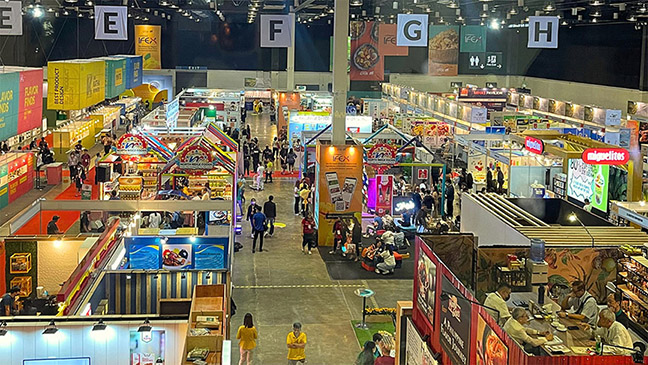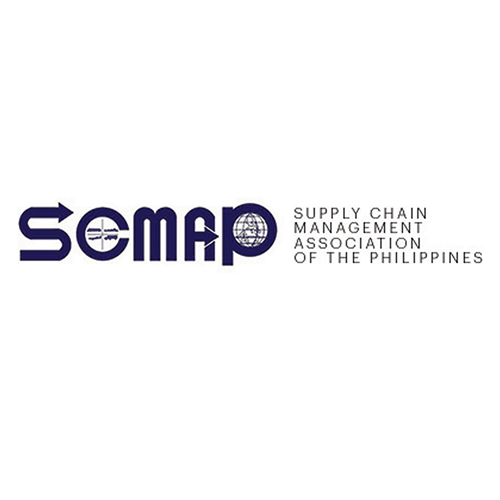-
Implementation of the ATA Carnet System will boost the country’s trade and attract foreign investments
-
Finance undersecretary Charlito Martin Mendoza said the system now offers Filipino businesses cost-effective access to international trade exhibitions that would have otherwise been prohibitive for them to attend in the past
-
DOF noted that foreign market access will be particularly beneficial to MSMEs, allowing them to join trade shows and sell their products on the spot
Implementation of the ATA Carnet System will boost the country’s trade and attract foreign investments, according to an official of the Department of Finance (DOF).
“With this system, we now offer them [Filipino businesses] cost-effective access to international trade exhibitions that would have otherwise been prohibitive for them to attend in the past,” DOF Revenue Operations Group (ROG) undersecretary Charlito Martin Mendoza said in a speech delivered on behalf of Finance Secretary Ralph Recto during the official launch of the ATA Carnet System on July 15.
READ: Passport for goods officially launched in PH
“This will increase export and import activities, enhance our trade balance, drive job creation, and attract foreign investments,” he added.
The ATA Carnet System, or the Convention on Temporary Admission (Istanbul Convention), is an international scheme that allows the temporary admission and tax-free and duty-free importation of commercial samples, professional equipment, and articles for presentation or use in trade fairs, shows, and exhibitions.
The ATA Carnet, sometimes referred to as the “passport for goods,” is a single document that will pass through several customs territories and will be valid up to one year. ATA is an acronym of the French and English words “admission temporaire/temporary admission,” while carnets are referred to as “passports for goods” or “merchandise passports”.
Philippine businesses attending trade fairs and exhibitions in territories that are parties to the Convention are among those that are expected to benefit from the Convention. The Philippines is the 81st country to implement the ATA Carnet.
DOF said the full implementation of the ATA Carnet System “will showcase Filipino-made products globally and provide wider access for local businesses to leverage opportunities in foreign markets.”
“Almost every industry with temporary importation/s can benefit from the use of ATA Carnets, such as commercial samples, professional equipment, and goods for display at exhibitions, fairs, and meetings,” it added.
DOF noted that foreign market access will be particularly beneficial to micro, small and medium enterprises (MSMEs), allowing them to join trade shows and sell their products on the spot.
Apart from reducing the costs of exporting goods, DOF said the ATA Carnet promotes trade efficiency as it simplifies customs procedures through a single document for all customs transactions, and makes arrangements for entry to many countries in advance at a predetermined cost.
On top of this, the merchandise passport will help facilitate the re-entry of the product to any contracting country since it eliminates the need to register goods with the contracting country at the time of departure.
As a result, DOF said this system ensures that the Bureau of Customs (BOC) can collect duties and taxes if goods are not re-exported within the stipulated time frame.
“We will leverage technology to streamline customs processes, enhance tracking and compliance, and ensure its seamless integration,” Mendoza said.
Customs commissioner Bienvenido Rubio during the launch signed the customs memorandum order implementing the ATA Carnet System in the country. The CMO implements BOC Customs Administrative Order (CAO) No. 02-2022, later amended by CAO 01-2023, to provide the rules and regulations in implementing the ATA Carnet System in the Philippines.
READ: BOC revises rules on ATA Carnet System
Rubio invites trade partners to avail the benefits of the newly-launched system, which he said will ensure that their goods traverse international borders smoothly and without unnecessary delays.
The ATA Carnet system will be managed by the Philippine Chamber of Commerce and Industry (PCCI) as the National Issuing and Guaranteeing Association (NIGA) for ATA Carnet. Its appointment was endorsed by the DOF through the BOC.
The NIGA is the association affiliated to a Guaranteeing Chain and accredited by BOC to issue Temporary Admission Papers (TAP) and to guarantee the amount of security and other charges to be imposed. Only one NIGA is appointed by BOC.
TAPs, meanwhile, are international customs document accepted as a customs declaration which makes it possible to identify goods and which incorporates an internationally valid guarantee to cover import duties and taxes.
PCCI executive vice president Ferdinand Ferrer earlier said beneficiaries of the system include fair exhibitors, traveling business/sales executives, technicians, professional individuals and teams such as, among others, photographers, film crew, journalists, surgeons, architects, artists, engineers, educationalists, entertainers, and freight forwarders.
Goods covered include commercial samples, professional equipment, and items for display or use at international trade exhibitions, trade shows, or similar events. Goods that are not covered include consumable/perishable/disposable items, items intended to be given away, alcoholic beverages, tobacco, and fuel; items intended for processing or repair, items already sold or offered for sale, unmounted gems or gemstones.
PCCI last May started accepting accreditation applications from businesses who intend to utilize the passport for goods.









